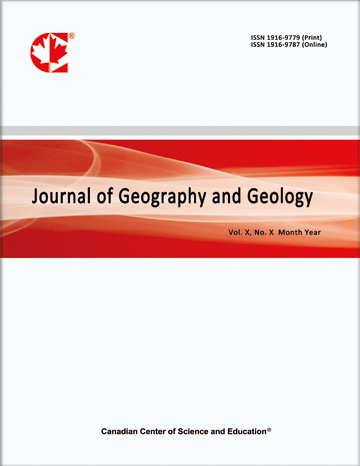Assessing the Impact of Projected Climate Change on Zoo Visitation in Toronto (Canada)
- Micah J. Hewer
- William A. Gough
Abstract
Weather and climate have been widely recognised as having an important influence on tourism and recreational activities. However, the nature of these relationships varies depending on the type, timing and location of these activities. Climate change is expected to have considerable and diverse impacts on recreation and tourism. Nonetheless, the potential impact of climate change on zoo visitation has yet to be assessed in a scientific manner. This case study begins by establishing the baseline conditions and statistical relationship between weather and zoo visitation in Toronto, Canada. Regression analysis, relying on historical weather and visitation data, measured at the daily time scale, formed the basis for this analysis. Climate change projections relied on output produced by Global Climate Models (GCMs) for the Intergovernmental Panel on Climate Change’s 2013 Fifth Assessment Report, ranked and selected using the herein defined Selective Ensemble Approach. This seasonal GCM output was then used to inform daily, local, climate change scenarios, generated using Statistical Down-Scaling Model Version 5.2. A series of seasonal models were then used to assess the impact of projected climate change on zoo visitation. While accounting for the negative effects of precipitation and extreme heat, the models suggested that annual visitation to the zoo will likely increase over the course of the 21st century due to projected climate change: from +8% in the 2020s to +18% by the 2080s, for the least change scenario; and from +8% in the 2020s to +34% in the 2080s, for the greatest change scenario. The majority of the positive impact of projected climate change on zoo visitation in Toronto will likely occur in the shoulder season (spring and fall); with only moderate increases in the off season (winter) and potentially negative impacts associated with the peak season (summer), especially if warming exceeds 3.5 °C.- Full Text:
 PDF
PDF
- DOI:10.5539/jgg.v8n2p30
Journal Metrics
(The data was calculated based on Google Scholar Citations)
Google-based Impact Factor (2018): 11.90
h-index (January 2018): 17
i10-index (January 2018): 36
h5-index (January 2018): 13
h5-median(January 2018): 15
Index
- BASE (Bielefeld Academic Search Engine)
- Bibliography and Index of Geology
- CiteFactor
- CNKI Scholar
- Educational Research Abstracts
- Excellence in Research for Australia (ERA)
- GeoRef
- Google Scholar
- LOCKSS
- NewJour
- Norwegian Centre for Research Data (NSD)
- Open J-Gate
- PKP Open Archives Harvester
- SHERPA/RoMEO
- Standard Periodical Directory
- Ulrich's
- Universe Digital Library
- WorldCat
Contact
- Lesley LuoEditorial Assistant
- jgg@ccsenet.org
